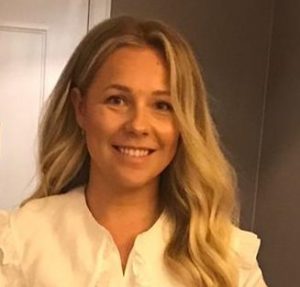Case Studies | Advocacy
What's Advocacy training really like? Jenna Salmman shares her journey
Many consider Advocacy to be a daunting prospect, but in reality, it a valuable and rewarding addition to your skill set, enhancing both your professional development and future career prospects. Jenna shares her experience of the Advocacy training course and offers some valuable insight.
Jenna Salmman's Advocacy journey
Following the creation of a new Advocacy Department within her firm (Admiral Law in Cardiff), Jenna decided the time was right to take the Advocacy training course to help maximise her future career options and to be able to provide consistency of service to her clients. We asked her to share her experience and what advice she would give to others considering the course.
How did you find out about the CRL Advocacy training course?
 I found out about the CRL Advocacy training course on the CILEx Regulation website. Not long after I qualified, I wanted to ensure I understood my rights as a Fellow and saw that I could gain rights of audience in my area of practice.
I found out about the CRL Advocacy training course on the CILEx Regulation website. Not long after I qualified, I wanted to ensure I understood my rights as a Fellow and saw that I could gain rights of audience in my area of practice.
On the website, I watched a webinar to ensure I was applying for the correct qualification. I soon realised that I was able to gain litigation rights as well as advocacy rights.
When I read about how to qualify and after watching the webinar, I realised that I needed to gain experience of conducting my own advocacy prior to attending the course. It was during lockdown that I started to attend more virtual hearings on cases which I had prepared myself. I then moved to our internal Advocacy department to start conducting my own hearings.
Why did you decide to do the training?
I’ve always been keen to keep progressing and I wanted to be able to enhance my qualification. Attending the training was a no brainer for me and made me feel that my qualification was complete. I think it is important to continue to develop your professional skills and the course will open up further opportunities for me in the future.
Did you find any elements of the course particularly challenging?
Personally, I like to be as organised and prepared as possible. Learning a new skill and being given the assessment documents just a day or so before the exam was challenging for me. However, it also gave me an insight that this is what advocacy can be like. Last minute instructions are likely to be received.
What are the main benefits of the additional qualification to you and to your organisation?
Although I had attended hearings, conducted my own and received internal training, it is still sometimes difficult to know whether you are doing a good job. Attending the course reassured me that I had the right etiquette and structure during my hearings.
Prior to attending the course, I was able to conduct many hearings, but not in open court. Now that the restrictions from the Covid-19 pandemic have mainly been lifted, a lot of courts are listing matters in person. I was not able to do this prior to my qualification, meaning some instructions would have to be rejected due to lack of availability within our department. This is of course a benefit to my organisation as well as myself.
Has completing the training influenced your future career plans? If so, how?
I have always been keen to progress and I enjoy doing so within my organisation. Whilst the qualification hasn’t encouraged me to change my job role, it makes me more confident in my current role and I am able to offer others advice on pre-litigated and litigated work, including any patterns I might see during hearings.
Would you recommend the CRL Advocacy training course to others?
I would. Whether you want to be regularly attending Court or maybe just the occasional hearing, it will still make you a better litigator. You will understand in further detail the importance of evidence and how that maybe considered during a hearing.
What advice would you give to others considering Advocacy training?
Becoming a Fellow is a huge achievement, and it takes a lot of hard work and late nights to get there. If you wanted to attend the Advocacy course, then you are well prepared in understanding the level of work and detail that is needed. The course was short (6 days) but it was intense. I’d make sure you keep your social diary free until you have completed all of your assessments!
Find out more
If you’ve been inspired by Jenna’s experience, or simply want to find out more, please visit the CRL Advocacy web page.

